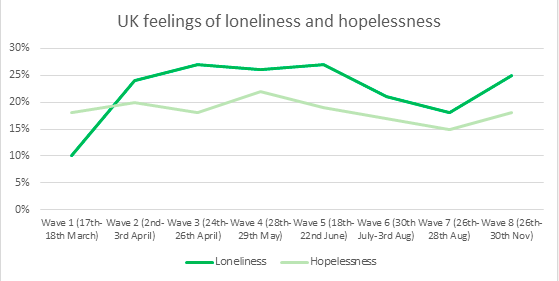
1. We are all being asked to give things up to deal with this problem, but the sacrifices are not evenly distributed
Sunetra Gupta.
Sunetra Gupta.
2. “We are seeing inequality within countries grow. You are seeing low-skilled workers being much harder hit, women being much harder hit, younger people being much harder hit than others are,”
ft.com/content/750eb5…
ft.com/content/750eb5…
United Nations is warning 2021 could be even more awful, with top officials saying the new year could be the worst in terms of humanitarian catastrophes in the organization’s 75-year history.
forbes.com/sites/nicholas…
forbes.com/sites/nicholas…
The number of referrals from the NSPCC about child abuse has increased by 79% since the UK-wide lockdown was imposed, according to the charity's data.
bbc.co.uk/news/uk-wales-…
bbc.co.uk/news/uk-wales-…
‘Over a three-month period, a lack of any kind of break from the four walls around you may cause serious long-term health damage, both physically and mentally.
elder.org/the-elder/surv…
elder.org/the-elder/surv…
The kids who are suffering most in this pandemic are the kids who were already suffering most. Kids with intellectual or physical disabilities, for example, whose lives depend on reliable schedules or in-person care, are disconnected from their lifelines
thecut.com/2020/11/covid-…
thecut.com/2020/11/covid-…
The Canadian COVID-19 lockdown strategy is the worst assault on the working class in many decades.
torontosun.com/opinion/column…
torontosun.com/opinion/column…
Vaccines alone won’t be enough to “repair the damage” done to inequalities in UK society brought about by the coronavirus pandemic according to a new report.
politicshome.com/news/article/p…
politicshome.com/news/article/p…
• • •
Missing some Tweet in this thread? You can try to
force a refresh






